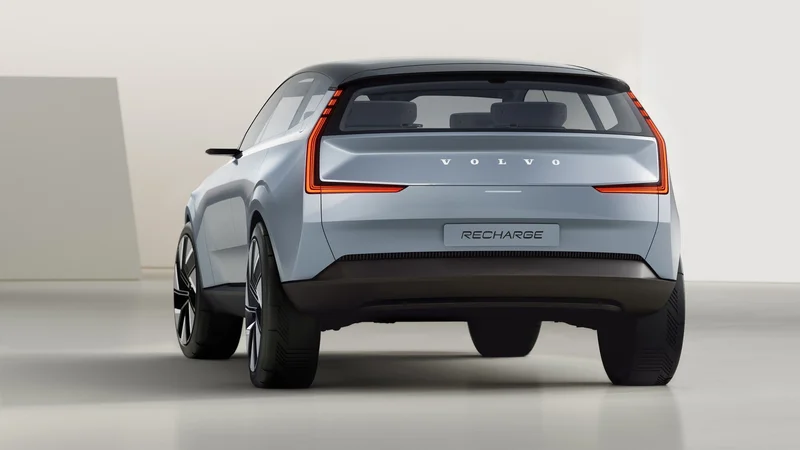Article Directory
So, Volvo’s stock popped 40%. Forty. Percent. In a single day. The headlines are screaming that Volvo Cars shares soar 40% after stronger-than-expected third-quarter profit, the analysts are drooling, and I’m sure there were plenty of high-fives in some glass-walled boardroom in Gothenburg. It’s the company’s best day since its IPO. Everyone’s supposed to be thrilled.
But when I see a number that big, that fast, I don’t get excited. I get suspicious.
A 40% jump isn’t a sign of a healthy, growing company. It’s a sign of a massive, violent market correction based on one thing: "stronger-than-expected" results. Let’s be real. "Stronger-than-expected" is corporate PR-speak for "we managed to surprise a bunch of analysts who were probably lowballing us anyway." It’s a game of managing expectations, and Volvo just played it perfectly. But a good game doesn’t mean a good company.
This whole thing feels less like a triumph of engineering and more like a triumph of accounting. It’s a sugar high. A short, glorious burst of energy that feels amazing right up until the inevitable crash. And I’m looking right at the ingredients that made this sugary confection.
The Financial Magic Trick
Dig into the reports, and you find the secret sauce isn’t some revolutionary new car or a sudden explosion in sales. Sales were just slightly up. No, the profit surge came from two places: a massive "cost-saving program" and some vague "unique items."
Let me translate that for you. "Cost-saving program" almost always means people lost their jobs, projects got axed, and corners were cut. This is just smart business. No, 'smart' isn't the right word—it's textbook financial engineering. You squeeze the company like a lemon to get every last drop of juice for the quarterly report, and investors, who have the attention span of a gnat, reward you for it. They see a bigger margin and throw money at the stock. Does it build a better car? Does it foster innovation? Does it create a sustainable business for the next decade? Who cares! The line went up today.
And what about those "one-off items"? The details are, offcourse, scarce. That’s the point. It’s a financial black box. Maybe they sold a building. Maybe they cashed in some investments. It's a one-time cash injection that makes the balance sheet look pretty for exactly three months. It's like finding a twenty-dollar bill in an old coat and declaring yourself financially solvent. It feels good, but it doesn't fix the underlying problem that you're broke.

This isn't growth; it's optimization. It's the corporate equivalent of a bodybuilder who stops drinking water to look more defined on stage. Sure, they look fantastic for a few hours, but they're dehydrated and fundamentally weaker. What happens next quarter, when there are no more "unique items" to pull out of a hat? What happens when you’ve cut all the costs you can cut without sawing into the bone?
The Great EV Distraction
Naturally, Volvo is leaning hard into the EV narrative. They’re ramping up production of their battery-electric vehicles (BEVs) and hyping the launch of the EX60 SUV. This is the other part of the magic trick: distract the audience with a shiny object. Look over here! We’re a futuristic tech company now, not a stodgy old Swedish automaker owned by a Chinese conglomerate. Please give us a tech-company valuation.
The market loves this story. Every legacy car company is desperately trying to convince Wall Street they’re the next Tesla. They throw around terms like "electrification strategy" and "BEV segment growth" while quietly admitting in the very next breath that they’re facing "persistent macroeconomic pressures," "price competition," and "U.S. import tariffs."
Wait, what? How can you be staring down the barrel of a global economic slowdown and a brutal EV price war—a war you will not win against Chinese brands or even Tesla—and still be celebrating a cost-cutting-fueled profit bump? It just doesn't add up. It’s like bragging about the new paint job on your house while ignoring the termite infestation in the foundation.
I remember when every company was a "dot-com." Then every company was a "social media platform." Now, every company with wheels is a "disruptive EV innovator." It’s a shell game. Volvo delivered solid results, sure. But they did it in a "challenging market" that ain’t getting any less challenging. The EX60 is launching into the single most competitive, blood-soaked segment of the entire auto industry. Good luck with that.
And the market just... eats it up. They see the 40% jump and think the turnaround is complete. They don't see the fine print. They don't ask what happens when the sugar high wears off.
So, Are We Just Supposed to Ignore the Fine Print?
Let's be brutally honest here. This isn't a story about Volvo's incredible comeback. This is a story about how easy it is to manipulate market sentiment with a well-timed press release full of corporate buzzwords. Squeeze your operations, dangle a shiny new EV in front of investors, and watch the stock go to the moon. It’s a playbook as old as Wall Street itself. I’m not buying it. The real test for Volvo isn’t this quarter. It’s the next four, when the "one-off items" are a distant memory and the EV price war is in full swing. This wasn't a victory lap; it was a flare fired from a ship that's still navigating some very, very choppy waters.
